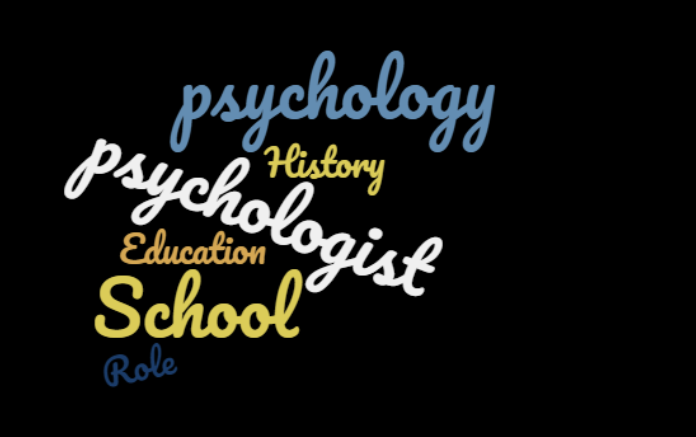School Psychology

School psychology is a branch of psychology that uses / applies the principles of developmental psychology, clinical psychology, educational psychology and applied behavior to meet children’s and adolescent’s behavioral health and learning needs in a collaboration with parents and educators.
School psychologist are uniquely qualified members of the school who supports student’s ability to learn and teacher’s ability to teach. They are basically expertise in mental health, learning and behavior to help children and youth to succeed academically, behaviorally, emotionally and socially.
History
School psychology was introduced in late 19th century and early 20th century. School psychology is a combination of functional and clinical psychology. The credit for introducing school psychology goes to Lightner Witmer. He used multidisciplinary approach to serve children through an individualized psychological examination which would lead to specialized intervention.
School psychologists showed their interest in childhood behavior, process of learning, dysfunction with life and brain itself. Their main goal was to understand the causes of behavior and the effects these behaviors had on learning.
Another important event in the foundation if school psychology is Thayer Conference. It was firstly held at West Point New York in Thayer in august 1954. It was nine – day long conference conducted by American Psychological Association (APA). The goal of this conference was to develop a position on the roles, functions and necessary training and credentialing of a school psychologist and the most appropriate way to train them was discussed in the conference among forty -eight participants who were practioners and trainers for school psychologists.
Thus, Thayer conference is one of the most significant events in the history of school psychology because it was there that the field was initially shaped into what it is today.
Important names in the field of school psychology -:
- Lightner Witmer -: He is the founder of school psychology. He was a student of both Wilhelm Wundt and James McKeen Cattell. He morely followed the teachings of Cattell and focused on learning about each individual child’s need. He also opened the first psychological and child guidance clinic in 1896 at the University of Pennsylvania. His main goal was to psychologists to help educators solve children’s learning problems, specially those with individual differences.
- Granville Stanley Hall -: Granville was another important figure of the origin of school psychology. Instead of looking at individual child he focused on the administrators, teachers and parents of exceptional children. He also created the child study movement, which helped to invent the concept of the “normal” child. His main goal of the movement was still the exceptional child despite the fact that he always worked with atypical children.
- Arnold Gesell -: He was the first person in United States to officially hold he title of school psychologist. He was also the one to fill the gap between the child study movement, clinical psychology and special education. He was successful in combining psychology and education by evaluating children and making recommendation for special teaching.
- Gertrude Hildreth -: She was a psychologist with the Lincoln school at Teacher’s college, Columbia and then at Brooklyn college in New York. She majorly focused on the importance of collaboration with parents and teachers. She has also developed the Metropolitan Readiness Tests. She had approximately written 200 articles and bulletins for her work in education.
Role of school psychologist -:
- Work with school aged children and young adults -: The role of school psychologist is to work with the problems faced by children and young adults in school. This also includes the learning disabilities, psychological disorders like ADHD, relationship problems among young adults etc.
- Listen to the academic social and emotional problems of the students -: They also help students who are weak in academics or facing an emotional and social problems.
- Promote positive behavior -: They also conduct the various programs and activities in school to promote positive behavior and healthy relationships among children and teachers as well.
- They are also responsible for meeting and counseling parents for topics like substance abuse and communication.
- They meet with parents and teachers to discuss learning, behavioral, familial and social problems.
Education requirement for becoming school psychologist -:
B.A / BSc in psychology (any other undergraduate will also work), Masters in school psychology, psychology or counseling. There are other diploma course also available in the field of school psychology.